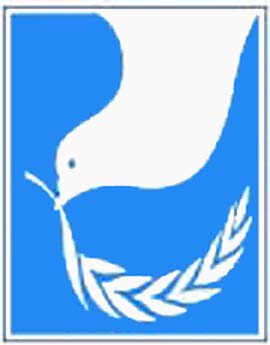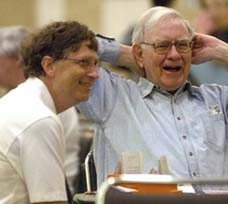2006.07.31: July 31, 2006: Headlines: COS - Micronesia: Obituaries: Newsday: Obituary for Micronesia RPCV Henry Gilgoff
Peace Corps Online:
Directory:
Micronesia:
Peace Corps Micronesia :
The Peace Corps in Micronesia:
2006.07.31: July 31, 2006: Headlines: COS - Micronesia: Obituaries: Newsday: Obituary for Micronesia RPCV Henry Gilgoff
Obituary for Micronesia RPCV Henry Gilgoff

In 1967, the Gilgoffs joined the Peace Corps, escaping the undertow of the Vietnam War draft on the shores of a tiny Pacific island territory then called Truk. The dozen-odd islands -- now called Chuuk and part of the Federated States of Micronesia -- in the late '60s lacked basics like plumbing, electricity and, of all things, journalism. So, on a mimeograph machine in a government building they put out Truk's first newspaper -- called Met Poraus, Truk for "What's New" -- and they broadcast a news digest on Truk's only radio station. The Gilgoffs eventually came home, where Henry found a job at Newsday.
Obituary for Micronesia RPCV Henry Gilgoff
Newsday journalist dies at 61
BY JENNIFER SMITH AND ERIK GERMAN
Newsday Staff Writers
July 31, 2006
Henry Gilgoff, a father of five and a reporter who shaped Newsday's consumer affairs coverage for decades, died yesterday at age 61. The cause was complications of amyloidosis, a rare disorder of the liver, family members said.
Friends and family said the defining themes of Gilgoff's life were his devotion to his family and his commitment to journalism. In 1963 at William Howard Taft High School in the Bronx, Gilgoff, then 17, served as managing editor of the school newspaper. His close working relationship with the features editor, Alice Kottek, 15, soon blossomed into more when he asked her on a date.
Click here to find out more!
After a night out seeing a Broadway show, "No Strings," the young editors were an inseparable couple. "He'd walk me home from school, he'd carry my books. I just loved talking to him," said Alice Gilgoff, now 59. "I was very impressed with how smart he was."
The conversations continued in college, as both helped to put out the student paper, The Campus, at City College of New York, where the pair quickly exhausted the university's journalism offerings. "They had maybe four journalism courses and we took them all," Alice Gilgoff said.
Alice Gilgoff said her mother insisted the couple delay marriage until after graduation.
"We graduated college on Sunday and got married Monday," she said.
In 1967, the Gilgoffs joined the Peace Corps, escaping the undertow of the Vietnam War draft on the shores of a tiny Pacific island territory then called Truk. The dozen-odd islands -- now called Chuuk and part of the Federated States of Micronesia -- in the late '60s lacked basics like plumbing, electricity and, of all things, journalism.
So, on a mimeograph machine in a government building they put out Truk's first newspaper -- called Met Poraus, Truk for "What's New" -- and they broadcast a news digest on Truk's only radio station. The Gilgoffs eventually came home, where Henry found a job at Newsday.
Those who worked with Gilgoff remembered him as a meticulous, dogged reporter who would patiently sift through the fine print that baffles many people -- product warranties, insurance claims and the like -- and then challenge companies on their own policies.
"Henry had a knack for explaining to people what happens when you don't do what you're supposed to do and he had a way of informing us all how to extricate ourselves," said Charles Gardner, director of the Suffolk County Office of Consumer Affairs, who worked with Gilgoff for more two decades. "He had a way of explaining things in everyday language that everyone could understand."
In the years that Gilgoff covered consumer affairs for Newsday, he wrote about everything from lost luggage to a run on a Waldbaum's Thanksgiving promotion that left several customers one turkey short for the holiday. Recently he profiled the travails of an East Atlantic Beach family whose house -- which had been converted to natural gas over a decade ago -- was flooded with 222 gallons of heating oil because of a botched delivery.
"Henry strongly believed that consumers need a voice and needed somebody to take up their cause," said Steve Sink, former Newsday business editor and a colleague of Gilgoff's for more than 15 years.
"There was no question that if a business or a company got a call from Henry Gilgoff, he got results -- it inevitably led to a change in the policy or how they dealt with customers."
But he was no bully. A gentle, gracious man whose infectious laugh rang through the newsroom when something tickled his finely developed sense of the bizarre, Gilgoff was quick to help other reporters out, sharing contacts and context on the beat he covered for so many years.
"He was a true gentleman who always had no problem being tough when it mattered, whether it came to getting the truth for our readers or facing the ongoing crisis caused by his health problems," Newsday editor John Mancini said. "We will all miss him."
Gilgoff did make the illness -- which impairs the function of organs and tissue with deposits of excess protein -- the subject of his final column, writing of his hope to receive a liver transplant.
"I've come to understand why we who want to live another day may not simply be overusing the medical system, as some critics contend," he wrote. "Instead, we're pushing the envelope. I want you to know that all along I've enjoyed your company."
Gilgoff went to great lengths to accurately report out all angles of a story, treating even Long Island's most infamous scam artists with scrupulous fairness, said Mark Harrington, a Newsday business writer and friend.
"If he put it in the paper, it was nailed down," said Newsday business editor Benjamin Weller.
In addition to his wife, Gilgoff is survived by his sons Hugh, 35, and Joseph, 23, both of Manhattan; Jon, 33, of San Francisco, and Matthew, 30, of Smallwood, N.Y.; and his daughter Julie, 26, of Brooklyn. He also had a younger sister, Maxine of Columbus, Ohio. Services are scheduled for 11 a.m. Tuesday, at Temple Sholom in Floral Park. The family has asked that donations in Gilgoff's name be made to The Amyloidosis Research Foundation, 4174 Meyers Ave., Waterford, MI, 48329.
Staff writer Tami Luhby contributed to this story.
When this story was posted in August 2006, this was on the front page of PCOL:





Peace Corps Online The Independent News Forum serving Returned Peace Corps Volunteers
 | Peace Corps' Screening and Medical Clearance
The purpose of Peace Corps' screening and medical clearance process is to ensure safe accommodation for applicants and minimize undue risk exposure for volunteers to allow PCVS to complete their service without compromising their entry health status. To further these goals, PCOL has obtained a copy of the Peace Corps Screening Guidelines Manual through the Freedom of Information Act (FOIA) and has posted it in the "Peace Corps Library." Applicants and Medical Professionals (especially those who have already served as volunteers) are urged to review the guidelines and leave their comments and suggestions. Then read the story of one RPCV's journey through medical screening and his suggestions for changes to the process. |
 | Gates charity races to spend billions
Warren E. Buffett’s gift of $31 billion to the Bill and Melinda Gates Foundation means that for tax reasons, starting in 2009, the foundation must distribute $3 billion annually, or a little more than twice what it distributed last year.
PCOL Comment: The Foundation says that "preventing the spread of HIV is the most durable long-term solution to the AIDS epidemic, and a top priority for the foundation." Peace Corps Volunteers and Returned Volunteers have been doing just that in AIDS Education for the past 15 years. Why not consider a $100M annual contribution to the Peace Corps to put 2,500 additional volunteers in the field to expand AIDS education worldwide? |
 | The Peace Corps is "fashionable" again
The LA Times says that "the Peace Corps is booming again and "It's hard to know exactly what's behind the resurgence." PCOL Comment: Since the founding of the Peace Corps 45 years ago, Americans have answered Kennedy's call: "Ask not what your country can do for you--ask what you can do for your country. My fellow citizens of the world: ask not what America will do for you, but what together we can do for the freedom of man." Over 182,000 have served. Another 200,000 have applied and been unable to serve because of lack of Congressional funding. The Peace Corps has never gone out of fashion. It's Congress that hasn't been keeping pace. |
 | Changing the Face of Hunger
In his new book, Former Congressman Tony Hall (RPCV Thailand) says humanitarian aid is the most potent weapon the United States can deploy against terrorism. An evangelical Christian, he is a big believer in faith-based organizations in the fight against hunger. Members of Congress have recently recommended that Hall be appointed special envoy to Sudan to focus on ending the genocide in Darfur. |
 | PC will not return to East Timor in 2006
Volunteers serving in East Timor have safely left the country as a result of the recent civil unrest and government instability. Latest: The Peace Corps has informed us that at this time, the Peace Corps has no plans to re-enter the country in 2006. The Peace Corps recently sent a letter offering eligible volunteers the opportunity to reinstate their service in another country. |
 | Chris Dodd considers run for the White House
Senator Chris Dodd plans to spend the next six to eight months raising money and reaching out to Democrats around the country to gauge his viability as a candidate. Just how far Dodd can go depends largely on his ability to reach Democrats looking for an alternative to Hillary Clinton. PCOL Comment: Dodd served as a Volunteer in the Dominican Republic and has been one of the strongest supporters of the Peace Corps in Congress. |
 | Vasquez testifies before Senate Committee
Director Vasquez testifies before the Senate Foreign Relations Committee on his nomination as the new Representative to the United Nations Agencies for Food and Agriculture replacing Tony Hall. He has been the third longest serving Peace Corps Director after Loret Ruppe Miller and Sargent Shriver. PCOL Comment: Read our thanks to Director Vasquez for his service to the Peace Corps. |
 | Peace Corps stonewalls on FOIA request
The Ashland Daily Tidings reports that Peace Corps has blocked their request for information on the Volkart case. "After the Tidings requested information pertaining to why Volkart was denied the position — on March 2 — the newspaper received a letter from the Peace Corps FOIA officer stating the requested information was protected under an exemption of the act." The Dayton Daily News had similar problems with FOIA requests for their award winning series on Volunteer Safety and Security. |
 | PCOL readership increases 100%
Monthly readership on "Peace Corps Online" has increased in the past twelve months to 350,000 visitors - over eleven thousand every day - a 100% increase since this time last year. Thanks again, RPCVs and Friends of the Peace Corps, for making PCOL your source of information for the Peace Corps community. And thanks for supporting the Peace Corps Library and History of the Peace Corps. Stay tuned, the best is yet to come. |
 | History of the Peace Corps
PCOL is proud to announce that Phase One of the "History of the Peace Corps" is now available online. This installment includes over 5,000 pages of primary source documents from the archives of the Peace Corps including every issue of "Peace Corps News," "Peace Corps Times," "Peace Corps Volunteer," "Action Update," and every annual report of the Peace Corps to Congress since 1961. "Ask Not" is an ongoing project. Read how you can help. |
 | RPCV admits to abuse while in Peace Corps
Timothy Ronald Obert has pleaded guilty to sexually abusing a minor in Costa Rica while serving there as a Peace Corps volunteer. "The Peace Corps has a zero tolerance policy for misconduct that violates the law or standards of conduct established by the Peace Corps," said Peace Corps Director Gaddi H. Vasquez. Could inadequate screening have been partly to blame? Mr. Obert's resume, which he had submitted to the Peace Corps in support of his application to become a Peace Corps Volunteer, showed that he had repeatedly sought and obtained positions working with underprivileged children. Read what RPCVs have to say about this case. |
 | Why blurring the lines puts PCVs in danger
When the National Call to Service legislation was amended to include Peace Corps in December of 2002, this country had not yet invaded Iraq and was not in prolonged military engagement in the Middle East, as it is now. Read the story of how one volunteer spent three years in captivity from 1976 to 1980 as the hostage of a insurrection group in Colombia in Joanne Marie Roll's op-ed on why this legislation may put soldier/PCVs in the same kind of danger. Latest: Read the ongoing dialog on the subject. |
Read the stories and leave your comments.

Some postings on Peace Corps Online are provided to the individual members of this group without permission of the copyright owner for the non-profit purposes of criticism, comment, education, scholarship, and research under the "Fair Use" provisions of U.S. Government copyright laws and they may not be distributed further without permission of the copyright owner. Peace Corps Online does not vouch for the accuracy of the content of the postings, which is the sole responsibility of the copyright holder.
Story Source: Newsday
This story has been posted in the following forums: : Headlines; COS - Micronesia; Obituaries
PCOL33817
91

























